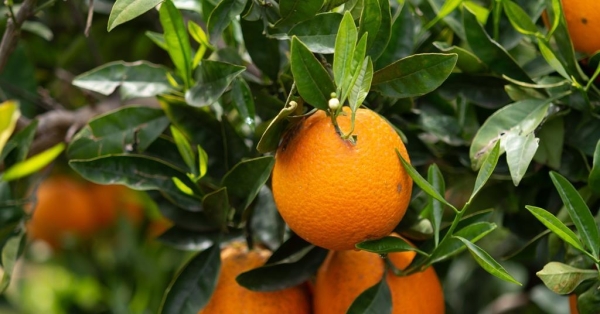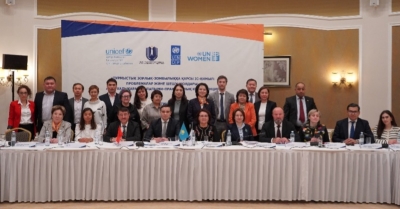Time is running out for the current job-killing citrus impasse between EU and South Africa to be resolved

In order to ensure that citrus exported to the European markets is of the highest quality, local growers have invested massively into research, development, phytosanitary and other quality assurance programmes, totalling R150 million a year. Growers have also invested billions of Rands in the establishment of state-of-the-art packhouses and cold storage facilities to process, pack and export citrus and keep it in top condition as it makes it way to consumers in key markets.
As a result, the South African citrus industry has a proven track record in protecting European production from the threat of pest or disease, including False Coddling Moth. Our rigorous Risk Management System ensures that 99.9% of oranges entering the EU are pest free with only 2 False Coddling Moth (FCM) interceptions detected in just under 400,000 tonnes exported to the EU last year.
It therefore came as massive surprise when, in the middle of the 2022 export season, the EU’s Standing Committee on Plant, Animal, Food and Feed (SCOPAFF) passed new FCM regulations, which will require extensive changes to the current applicable phytosanitary (pest control) requirements, with all oranges shipped to the EU now needing to be precooled to below 2 degrees Celsius and then maintained for 20 days.
The scientific reasons for why these unjustified and discriminatory regulations were passed despite the efficacy of South Africa’s Risk Management Systems remain unclear. However, what is plain to see is the negative impact this new legislation will have on both South African growers as well as European traders and consumers.
Currently, the South African citrus industry is a major economic contributor to the national economy, bringing in R40 billion in export revenue annually and sustaining 130 000 jobs. Most of these employment opportunities are in rural areas where unemployment is high and poverty rife. There are also a number of black developmental growers who supply citrus to European markets.
However, the new regulations pose a major threat to the sustainability and profitability of thousands of growers and the livelihoods they support. It is estimated that this year alone additional costs and loss of income for growers will amount to R500 million (just over £25 million), which is over and above the R200 million (just over £10 million) losses already incurred by growers when this new legislation was passed mid-season in 2022. Furthermore, an investment in cold storage technology and capacity of nearly R1.4 billion (just over £70 million) will be required to enable full compliance.
AdvertisementFollowing an extremely challenging past three years due to the Covid-19 pandemic, soaring farming inputs costs, a hike in shipping rates and ongoing power outages in South Africa, the 2023 export season will be a watershed one for many growers. The new EU FCM regulations could very well be the final nail in the coffin for hundreds of them and the thousands of workers they support.
At the same time, this new legislation also poses a threat to the supply of top-quality oranges to European markets, in particular, organic and chem free (non-treated) orange varieties that are not suitable for the prolonged cold treatment of below 2 degrees Celsius. These include several popular varieties such as blood oranges, Turkey, Salustiana, Benny and Midknights. Yet, these environmentally friendly and sustainable orange types have never recorded a FCM interception.
Last year, when the regulations were passed, growers were permitted to apply an interim cooling regime of below 5 degrees Celsius for 20 days. At these temperatures levels there was already major damage seen on organic oranges entering the EU, with up to 80% of fruit in many containers showing stress and could therefore not be sold in supermarkets. As a result, thousands of tons of citrus became food waste and dumped.
If 2 degrees Celsius pre-cooling is enforced, it will become commercially unviable and unsustainable to export organic oranges to the region. It is estimated that in the Netherlands market alone, this will see €14,462,500 losses for South African growers exporting organic oranges to the country as well as additional turn over losses for Dutch importers.
Overall, it is estimated that around 20% of oranges produced for Europe will not be shipped this year as a result of the new regulations. This means that approximately 80 000 tons of oranges will not make it to European supermarket shelves, which could potentially result in a gap in the supply of oranges from July to October this year.
We are of the view that the new regulations are nothing more than a political move by the Spanish citrus producers to block South African citrus from being exported to the region. This is despite South African growers only supplying 7% of this market, in the off season for all European producers. The peak production period for Spanish citrus producers who supply 45% of the total EU market is from January to May, while South Africa growers only see their fruit being sold from July to October.
It would therefore make far more sense for producers in the southern and northern hemispheres to be working together to ensure that European consumers enjoy access to top-quality citrus all year around. Not only would this benefit EU and South African growers and the livelihoods they support, it would also contribute towards food security and the long-term sustainability of the global citrus industry.
We cannot allow politics to threaten the year-round supply of oranges to the EU and undermine international requirements for phytosanitary trade regulations. That is why the South African government has lodged a dispute at the World Trade Organisation (WTO) and continues to raise the unjustified regulations during meetings between senior South African and EU officials and politicians.
With so much at stake, we are urging other EU countries to also take a stand-by calling for the regulations to be referred back to SCOPAFF for proper deliberation and consideration before orange exports to the region kick off in May so that we safeguard the 140 000 livelihoods that depend on the survival of the local citrus industry and ensure the continuity of orange imports from South Africa and year-round availability for EU consumers.
Justin Chadwick is CEO of the Citrus Growers’ Association of Southern Africa.
Share this article:



